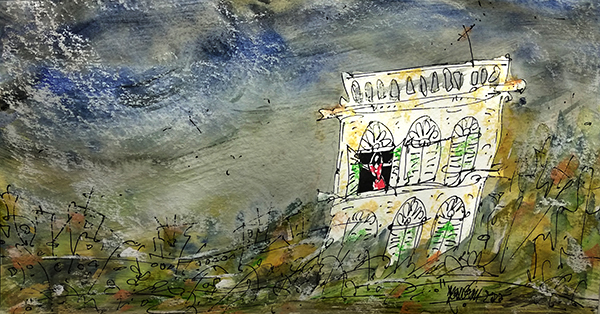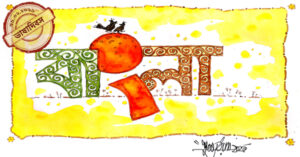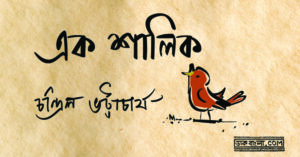Escape to Baghdad
As Bengalis, mid-April onwards, we remain in pleasant anticipation for the storms to arrive. We count on the majestic Kalboishakhi to pierce through the unforgiving heat and bring us a splash of relief. This year, however, the romanticism of it all has been diffused, if not entirely destroyed by the constant attack of politics and pestilence.
This time around, Poila Boishakh has brought on an unending insurgence of death and despair. The second wave of this disease seems to be back with a vengeance. I honestly find it incredibly hard to keep up with this constant deluge of terrible news. We are back at square one, stuck indoors, away from our friends and family. We may be slightly more adept at dealing with the technicalities of a worldwide pandemic, but, in my opinion, the anxiety in general is far worse. So the question is, how does one remain sane and functional mentally, amidst this incessant paranoia-inducing atmosphere? I think everyone needs a little bit of an escape from this terrifying reality.
As a child, I happened to spend a lot of time on my own or with my grandparents in this huge South Calcutta house. My favourite thing to do to pass the time would be to pester my grandfather to tell me stories. It was a demand he had to fulfil, either before an afternoon nap, or before going to sleep at night. He introduced me to the glorious tales from ‘One Thousand and One Nights’ and that is where I first met the Caliph of Baghdad, Harun Al-Rashid. From then on, I became obsessed with worlds that only exist in our imagination. Make-believe, magical places where we could for a few moments, simply escape. Therefore, I became the child who lived a bit too much inside her head but what to do, it was full of adventures.
I bring this up, because I feel as though right now, we’re akin to prisoners in an apocalyptic world. Perhaps, at this juncture in time, we desperately need that tiny window in our cell. An opening through which our imagination can fly us to some fantastical land for just a few moments a day. As of today, I can proudly claim to be quite the fantasy nerd. There is one particular magical tale that links my childhood to my budding adulthood. The 50th issue of Neil Gaiman’s iconic graphic novel series Sandman, titled Ramadan, reacquainted me with none other than Harun Al-Rashid and his magical city of Baghdad. Gaiman’s dream of a protagonist Morpheus (also referred to directly as Dream) and the Caliph strike a deal. This is the crux of the tale, but to reach it one gets to travel through the wondrous palace and the majestic city of Baghdad. While I may be one of the biggest fans of Gaiman, I must give equal credit to P. Craig Russell for creating the most magnificent images. Gaiman’s beautifully constructed narrative structure and slightly detached yet incredibly engaging style of writing is taken to another plane of ethereal through the images Russell creates. I was mesmerised.
Ramadan truly reads like a dream, and by the end of it, we realise that perhaps that was the point of it all. Haroun Al-Rashid realised sustaining this dream forever would be impossible. The seeds of corruption were already plaguing his city. He knew he couldn’t stop this disease from spreading further and the way his desperation is showcased is beautifully heartbreaking. The Caliph, however, came up with a solution and that is where we find out the terms of his deal. He asks the King of Dreams to allow his city to reign forever in its state of glory, even if this meant that it exists only in his realm. After his wish is granted we see a man waking up on a filthy rag; once a flying carpet. The last page shows us a child buying a story about the magical city of Baghdad in exchange for a coin. This final image we are left with inevitably takes me back to my sessions with my grandfather every single time.
Neil Gaiman is an author who reigns well and truly in the genre of fantasy. He is someone whose writing I can relate to and get lost in guiltlessly, even, or perhaps, especially as an adult. He writes for all ages.
While my top recommendation is definitely his iconic graphic novel series, Sandman. It is a masterpiece worth getting lost into. I would, however, also strongly recommend his novel American Gods; it does a fine job of showcasing our world through a fantastical lens while also slapping us with some much-needed reality checks. In such terrifying times of trouble, a heart-warming dream feels like a blessing and a curse. But I’d much rather choose to pay the price like Harun Al-Rashid did, than not have seen it at all.





